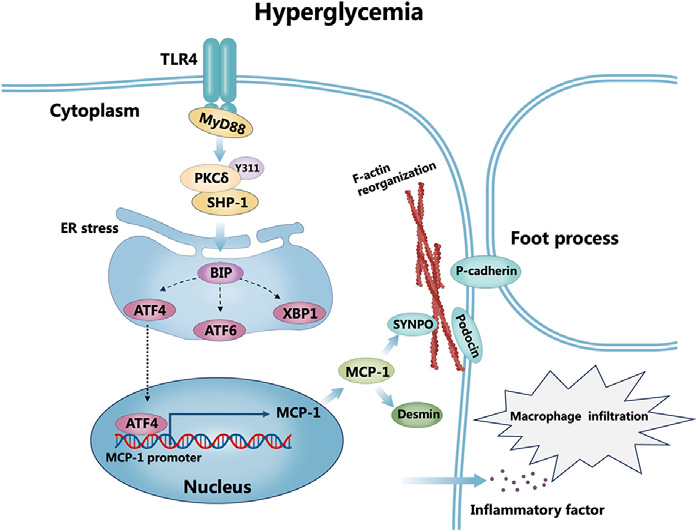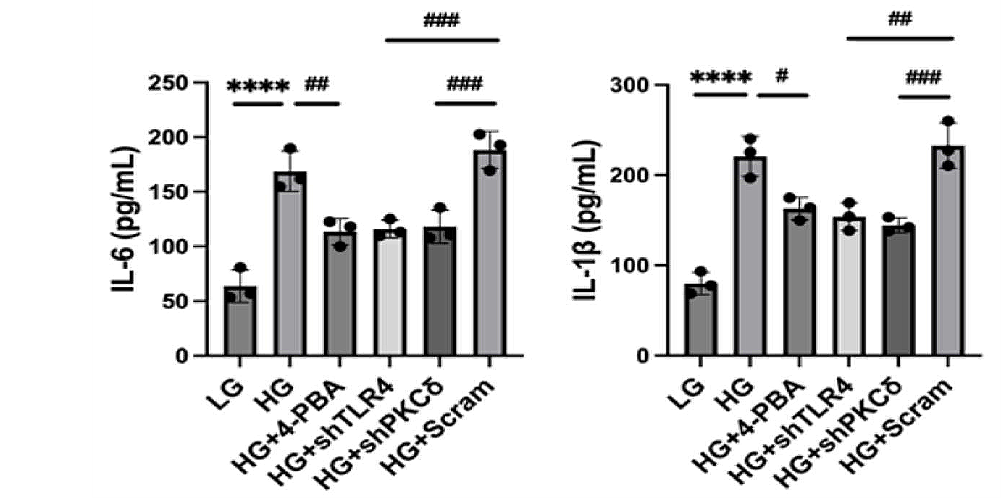Literature Update:
Targeting the Downstream Signals of TLR4:
A New Approach for the Treatment of Diabetic Nephropathy

Literature Update
Journal of Advanced Research / IF:13.0
Podocyte TLR4 deletion alleviates diabetic kidney disease through prohibiting PKCδ/SHP-1-dependent ER stress and relieving podocyte damage and inflammation
Affiliations:Qilu Hospital, Shandong University
DOI: https://doi.org/10.1016/j.jare.2025.07.013

Product Citation:
Mouse IL-6 ELISA Kit(RE3186M)
Mouse IL-1β ELISA Kit(RE1074M)
Abstract:
This study investigated the regulatory role and mechanism of Toll-like receptor 4 (TLR4) in diabetic podocyte injury.
It was found that TLR4 expression was upregulated in high-glucose-stimulated podocytes and streptozotocin (STZ)-induced diabetic renal tissues. Mechanistically, high glucose activates the TLR4/MyD88 signaling pathway, initiates the downstream PKCδ/SHP-1 signaling cascade, triggers endoplasmic reticulum stress and release of the inflammatory factor MCP-1, leading to structural damage to the podocyte slit diaphragm (SD), cytoskeletal disruption, and inflammatory responses. Podocyte-specific knockout of TLR4 alleviates podocyte injury and proteinuria by blocking the above-mentioned abnormalities, confirming the critical role of the TLR4/MyD88/PKCδ/SHP-1 axis in diabetic nephropathy and providing a theoretical basis for targeted TLR4 therapy.

